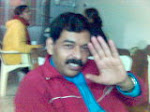
A new role for the media
Big conservative papers like the Chosun Ilbo, JoongAng Ilbo, and DongA Ilbo have been looking pretty shabby at the daily candlelight protests. Citizens parading in the streets pass by the tall buildings that house those newspapers and call out for them to, ¡°Turn off those lights! You¡¯re not worth the electricity!¡± There are slogans telling them to go out of print, and their reporters on the ground at these protests find themselves being ridiculed. They¡¯re saying these papers can¡¯t be seen as news media, so their position is not much different from the way the government-controlled media was given a baptism by pebbles at the climax of the April 19 Revolution in 1960.
The reason these newspapers are being scorned is because they are pushing positions that run contrary to the will of the people. Early in the mad cow disease issue, their coverage was largely about preaching to the people, about how American beef is safe, and about how the Korean people don¡¯t know what they¡¯re talking about. After the government went through the motions on those additional negotiations, these papers announced that would be enough and tried to keep additional demands at bay. It tried to discredit the candlelight protests with the absurd, like saying that someone was agitating from behind the scenes. Now they are suddenly calling for President Lee Myung-bak to wake up and change, but that looks mostly like dwitbuk chigi, hitting the drum after the beat has come and gone, only because they realize the country is angry at them as well as at the government. They put their trust in the influence they enjoy and tried to push the will of the people this way and that, and this is what they are doing after having failed.
The media is, by its nature, supposed to suggest things that must be dealt with by the community, and to put those things to public discussion. It is supposed to perform the function of suggesting the agenda. The reason people have been turning their backs on the big papers in their coverage of the candlelight protests is because the papers saw the people only as entities that should accommodate their intentions.
That kind of arrogance doesn¡¯t work anymore. The public was once a consumer of information, but now, through the Internet and mobile communication, it produces information and debates common issues through exchanges in real time. Direct action takes place simultaneously online and offline, and on a massive scale. In the past, public opinion was formed through the one-way delivery of information by the massive newspaper and broadcasting companies, but now it is interactive communication that owns the market of public opinion.
The people are interactive communicators, and they are taking a stand; they¡¯re out to correct a public opinion formation device that is not what it should be. There is a petition of signatures of people who say they are going to stop subscribing to the Chosun, JoongAng, and DongA, and there is an online campaign against companies that advertise with those papers. This is something different than official government pressure on advertisers in that it is essentially a kind of consumer movement and citizen action, since it is the consumers of these media that are directly trying to influence them. It is also a strong warning, one that says the old ways of painting the pages of newspapers with the opinion of a minority - the newspaper conglomerates - isn¡¯t going to be accepted anymore.
If these newspapers ignore the changed climate, the news media as a whole could find itself not being trusted. This is what makes the fact that a few newspapers are being criticized for their arrogance not just the concern of those few papers. It is time to explore a new role for the media, one that is befitting of the new ways of communication.



No comments:
Post a Comment